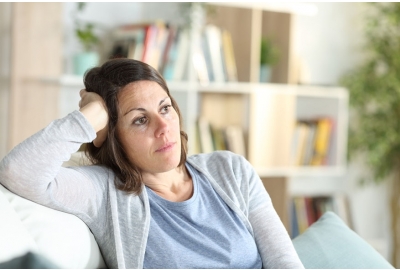
Anxiety and Frequent Urination: Understanding the Connection

Anxiety and stress are linked to an array of medical conditions, including incontinence. Anxiety can lead to worsened frequent urination, and frequent urination itself can also cause anxiety, creating a negative cycle that just keeps going. We talked to the experts to learn what the connection is between frequent urination and anxiety — and what to do about it.
Understanding Frequent Urination
Sometimes, it can be hard to determine whether or not you truly are urinating frequently. After all, what’s normal for each individual varies and is greatly impacted by how much fluid you drink each day. Some people wonder if it’s bad to hold your pee as a solution to this. Although every body is different, as a general rule, “urinary frequency can be defined as the need to urinate more than seven times in a 24-hour period while drinking approximately 2 liters of fluid,” says Dr. Aniko Dunn, a Doctor of Psychology with EZCare Medical Clinic.
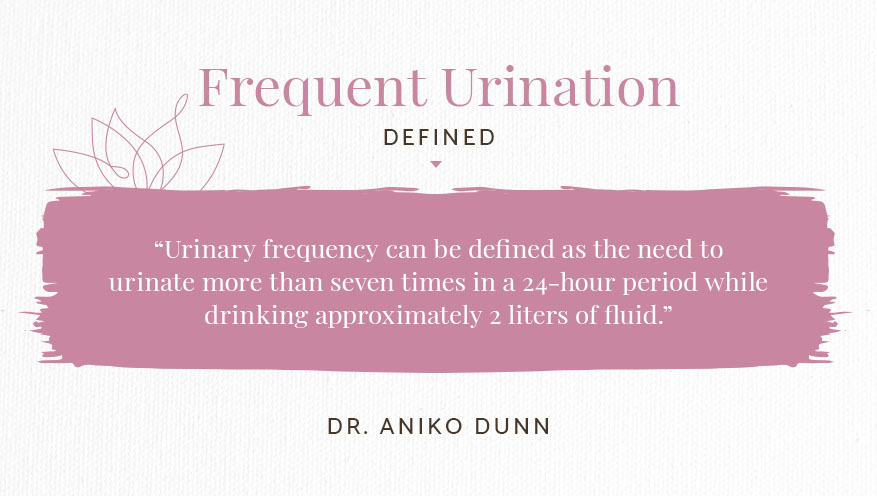
Learn More About Frequent Urination In This Blog Post
The Connection Between Frequent Urination and Anxiety
It’s not just in your head: stress can make you urinate more frequently. You’re probably used to your stomach cramping or your shoulders hunching when you’re stressed, and this same effect extends to your bladder muscles as well.
“Anxiety and stress can contribute to frequent urination,” says Dr. Rachel Gelman, owner of Pelvic Wellness & Physical Therapy. “This is partly due to the fact that muscles around the bladder may tense up, which can make the brain think it's time to pee.”
The effects of anxiety extend beyond your muscles to your nervous system. Your entire nervous system is connected, including your bladder nerves, so when stress activates the fight-or-flight response, that directly involves your bladder.
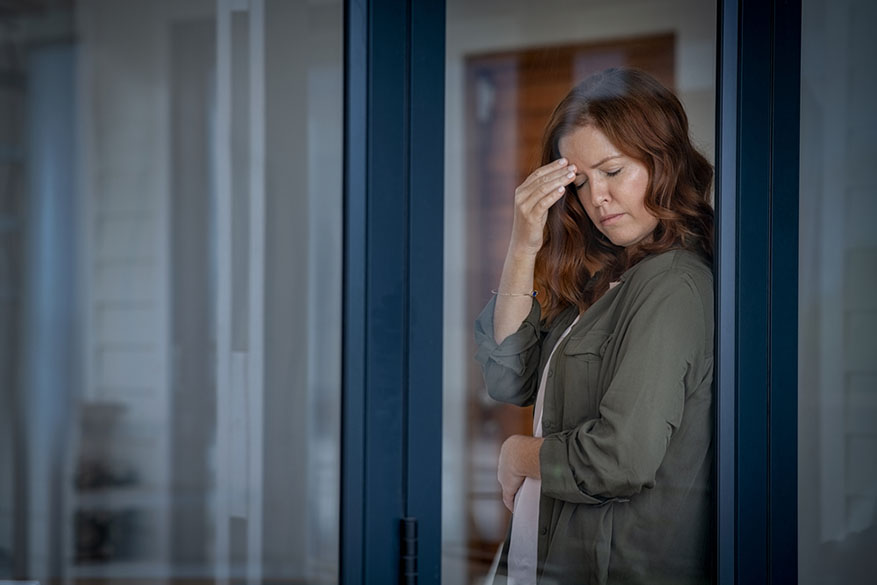
“Stress and anxiety also activate the sympathetic nervous system — or the fight or flight response — which can make the body think it needs to relieve itself in order to escape,” says Dr. Gelman.
“When you’re stressed, the body is hyper stimulated, including the kidney-urinary functions,” adds Dr. Jaydeep Tripathy. “Adrenaline is high, even when you are anxious, and the fight-or-flight mode of the body can make you feel the urge to urinate frequently.”
Worrying about whether or not you can find a restroom can also exacerbate any incontinence that you are already experiencing, making you feel like you need to pee even more frequently. “Unfortunately, individuals who suffer from an overactive bladder or urine incontinence may experience anxiety or stress as a result of the continuous worry that they may not be able to use the restroom in time,” says Dr. Elizabeth Lombardo. “Your bladder becomes more reactive as a result of your worry. “
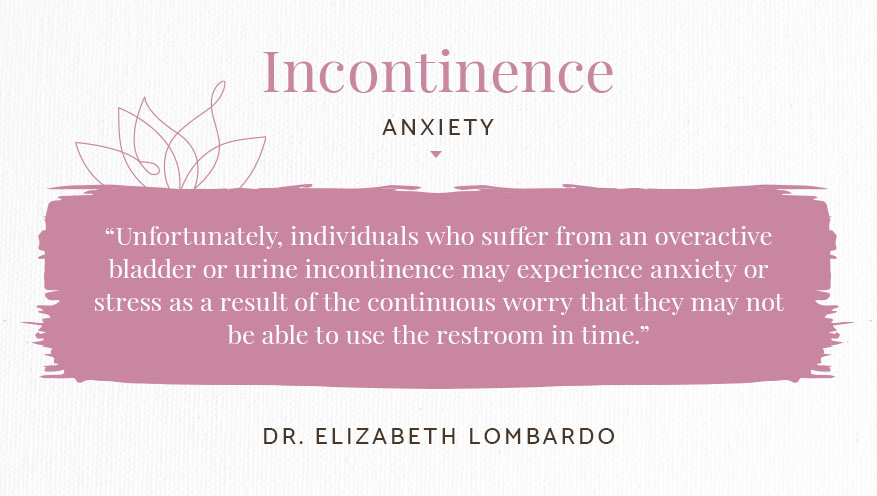
Finally, age-related hormone changes triggered by menopause can cause or worsen both anxiety and incontinence. These two factors work together to trigger the urge to urinate, sometimes constantly.
“Hormonal imbalance during menopause can lead to anxiety or even depression,” says Jolene Caufield, Senior Advisor at Healthy Howard. “This leads to the vicious cycle of anxiety, muscle tension and a frequent urge to urinate. A woman’s body also changes during menopause such as loosened elasticity of the urethra and the vagina. This can lead to reduced or lack of bladder control.”
So What Can You Do About It?
You don’t have to let your anxiety continually trigger your incontinence, or vice versa. Here are five things you can do over both the short- and long-term to improve your anxiety and your incontinence.
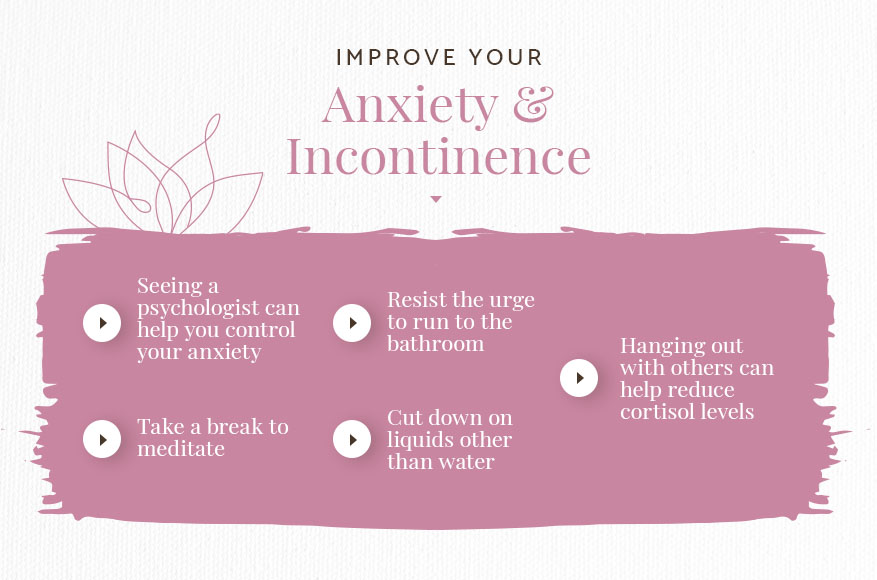
- See a Professional — Seeing a mental health therapist or psychologist can help you control your stress and anxiety, which can help decrease the associated urge to urinate. If your incontinence issues also have a physical root, then a medical professional can help you treat it from that angle, too. ”A pelvic floor specialist can help provide exercises to address urinary urgency and frequency,” says Dr. Gelman.
- Take a Break to Meditate — If the urge to urinate is mostly mental, then medication or a distraction can help lessen the impulse in the moment. “If you feel nervous and need to pee, but you do not want to go to the bathroom or have easy access to the bathroom, try to distract yourself or meditate to give your mind and muscles a break,” says Dr. Dunn.
- Resist the Urge to Run to the Bathroom — Speaking of running to the bathroom, that could actually be making your discomfort worse. ”It is important to try and stay calm and slowly walk to the bathroom, as running or rushing can increase the sympathetic response and make the urge worse,” says Dr. Gelman.
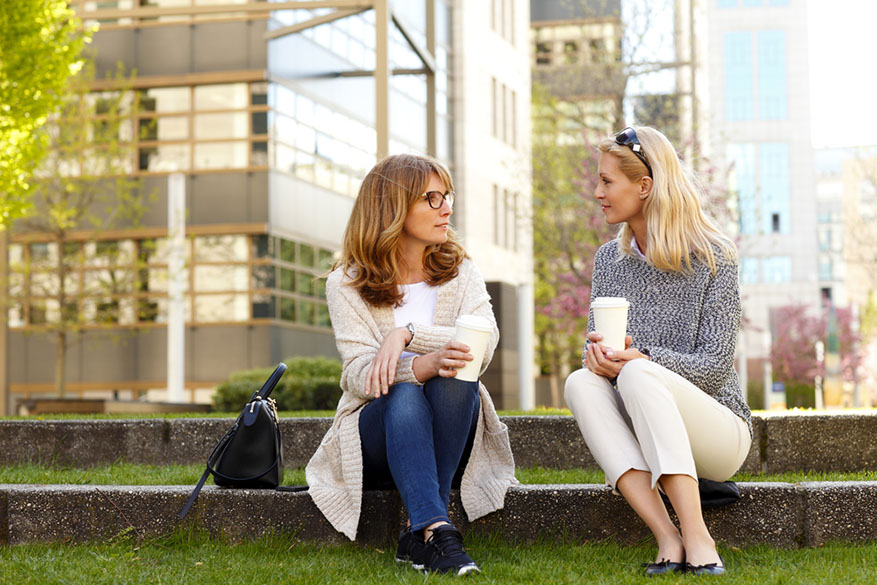
- Spend Time with Friends — When it comes to reducing your stress, hanging out with others can help reduce your cortisol levels and take your mind off the urge to urinate. ”Meet a buddy at a museum or theater with readily accessible restrooms. To minimize worry, keep your time together to a minimum. You'll be allowed to gradually increase your excursions as you begin therapy and see results,” says Dr. Lombardo.
- Watch What You Drink — While you shouldn’t let yourself become dehydrated, drinking too much fluid will trigger frequent trips to the bathroom whether you are anxious or not. ”Cut down on liquids other than water, and try to limit your fluid intake if you want to pee less frequently,” says Dr. Tripathy. “Smoking and drinking alcohol can also cause you to pee more often. Avoid those and coffee and other caffeinated beverages, too.”
If your urge to urinate leads to bladder leakage, incontinence products for women can help keep you dry and comfortable in the short-term while you wait for your therapy to provide the long-term effects. Sofia & Grace is here to help you keep living your life to the fullest, whether you need a supportive online community or incontinence liners shipped directly to you.
Shop All Bladder Control Products Here
Image Credits
Kinga/Shutterstock.com
Rido/Shutterstock.com
Pheelings media/Shutterstock.com
Olga_C/Shutterstock.com